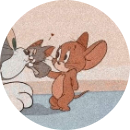Học tại trường
Chưa có thông tin
Đến từ
Bình Phước , Chưa có thông tin
Số lượng câu hỏi
189
Số lượng câu trả lời
557
Điểm GP
26
Điểm SP
444
Người theo dõi (146)
Đang theo dõi (191)

Chủ đề:
Unit 1: Local EnvironmentCâu hỏi:
SMILE POWER
The expressionon your face can actually dramatically alter your feeling and perceptions,and it has been proved that (1)____ smiling or frowning can create corresponding emotional responses.The idea was first put forward by a French physiologist, Israel Waynbaum,in 1906.He believed that different facial (2)____ affected the flow of blood to the brain, and that this could create positive or negative feelings.A happy smile or irrepressible (3)_____ increased the blood flow and contributed to joyful feelings.However,sad, angry expressions decreased the flow of oxygen-carrying blood, and created a vicious circle of gloom and depression by effectively starving the brain of essential fuel.
Psychologist Robert Zajonc rediscovered this early research, and (4)_____ that the temperature
of the brain could affect the production and synthesis of neurotransmitters-which definitely influence our moods and energy levels.He argues that an impaired blood flow could not (5)______ deprive the brain of oxygen, but create further chemical imbalance (6)______ inhibiting these vital hormonal messages.Zajonic goes on to propose that our brains remember that smiling is associated with being happy,and that by deliberately smiling through your tears you can(7)______ your brain to release uplifting neurotransmitters-replacing a depressed condition (8)______ a happier one.People suffering from psychosomatic (9)_____, depression and anxiety states could (10)______ from simply exercising their zygomatic muscles which pull the corners of the mouth up and back to form a smile-several times an hour.
1. A.desperately B.determinedly C.deliberately D.decidedly
2.A.aspects B.looks C.expressions D.appearances
3.A.laughter B.sadness C.humor D. depression
4.A.advises B.wants C.demands D.suggests
5.A.even B.only C.ever D.always
6.A.by B.without C.when D.from
7.A.make B.persuade C.let D.decide
8.A.through B.by C.after D.with
9.A.disease B.illness C.infection D.ailment
10.A.recover B.improve C.benefit D.progress


Chủ đề:
Luyện tập tổng hợpCâu hỏi:
Reported speech with gerund
1."Shall we go for a swim now?"
She suggested...........
2."I know I'm wrong," he said
He admitted...................
3."I didn't say that," he said
He denied.............
4."If only I had told him the true!"
Jane regrets.............
5."I haven't finished the assignment yet.I'm really sorry"
The boy apologized............
6."It's you who took my bag" said the man told the boy.
The man accused...........
7."No,no.I really must sit for the test."
She insisted on.................
8."What I always want is to becme a doctor,' she said
She dremt.........
9,"I can't let you use the mobile phone," his mother said
His mother prevented............
10."It's really nice of you to visit me," She said to him
She thanked..................
11. "I like the car.I'll buy it"
The woman thought............
12."I feel like going to Americaa soon"
She looked forward to.............................
13."Whatever you do,don't walk on the grass"the safeguard said to the tourists
The safeguard warned..
14."It was you and only you who stole the cake from the fridge"my mother told my sister
My mother accused........
15.:I'm sorry that i broke the glass" said Peter
Peter apologized.........................

Chủ đề:
Luyện tập tổng hợpCâu hỏi:
Reported speech with infinitive
1."I'll wait for you, I promise," he said to me
He promised.......
2."Please,please turn off the TV,John," said Tom
Tom begged........
3.His mother said to him: "Open the window please!"
His mother told................
4.He said to me: Shut the door after you"
He told..............
5.The captain said to them: "Wait here still I come back"
The captain ordered...........................
6."Mr.Brown, this is Miss White,'' he said
He introduced....................
7.He said to me: "Don't come back before one o'clock"
He asked..............
8.My mother said:"Don't forget to lock the door"
My mther told.............
9."Don't touch that switch,Peter" I said
I warned..........
10." Come and have dinner with us" Rosy said to John
Rosy persuaded..................
11."Remember to write to me soon,'' she said to me .
She reminded.......
12." You'd better spend more time learning to write,'' I said to the boy
I advised......................
13."Don't lean your bicycle against my windows,boys'' said the shopkeeper
The shopkeeper warned....................
14.would you like me to help you with the cooking,Tom?'' Laura said
Laura offered..................
15.Would you like to go camping with us next weekend?'' said John to Ann
John invited........................

Chủ đề:
Luyện tập tổng hợpCâu hỏi:
REPORTED SPEECH: CONDITIONAL SENTENCES)
1.If I had any money I'd buy you a drink," she said to me.
She told me...................
2.”If I catch the plane I’ll be home by five,” he said
He said if...............
3.”You should stay in bed if you feel unwell”. My mother said
My mother said that if...........................
4.”What would you do if you were having a problem with grammar,Jane?’ Anne asked
Anne asked Jane what she......
5.”If I’d had my moble yesterday, I could have contacted you,” Matthew said.
Matthew said if he..............
6.”If I were you,I’d stop smoking,’’she said to her brother
She advised...................
7.”If the baby is a girl what will they call her?”he wondered
He wondered what.....................
8.”If I don’t practise my English I won’t get any better,’’ she said
She said if she..................
9.” I’d have been in bad trouble if Jane hadn’t helped me,” he said
He said he.......................
10.” If the door is locked what shall I do?” She asked
She asked what.................












